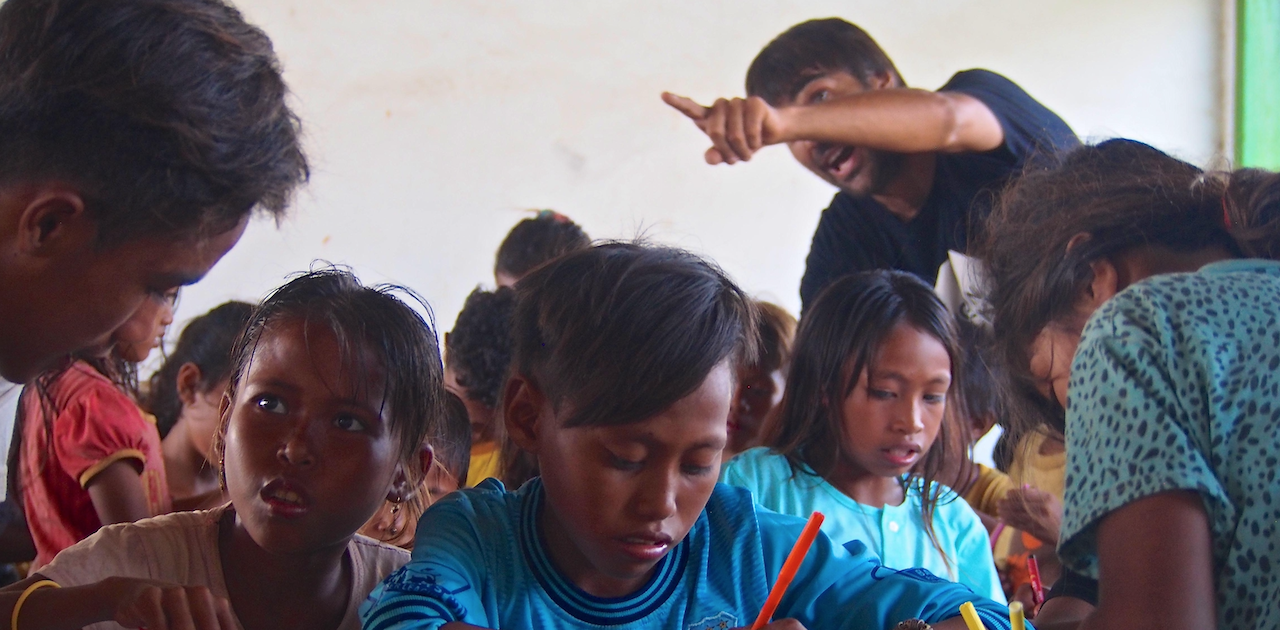Story of Harapan Project:
My name is Carlos Ferrandiz, I was born in 1980 and I have been working for 7 years as a lawyer in a large law firm, with a professional career ahead of me that many would envy. On 2010 I decided to quit my job, my family and my friends to move and live in Indonesia, totally devoted to the Harapan Project (Harapan means hope in Indonesian), humanitarian project which my NGO has been developing on the island of Sumbawa, in the Republic of Indonesia.
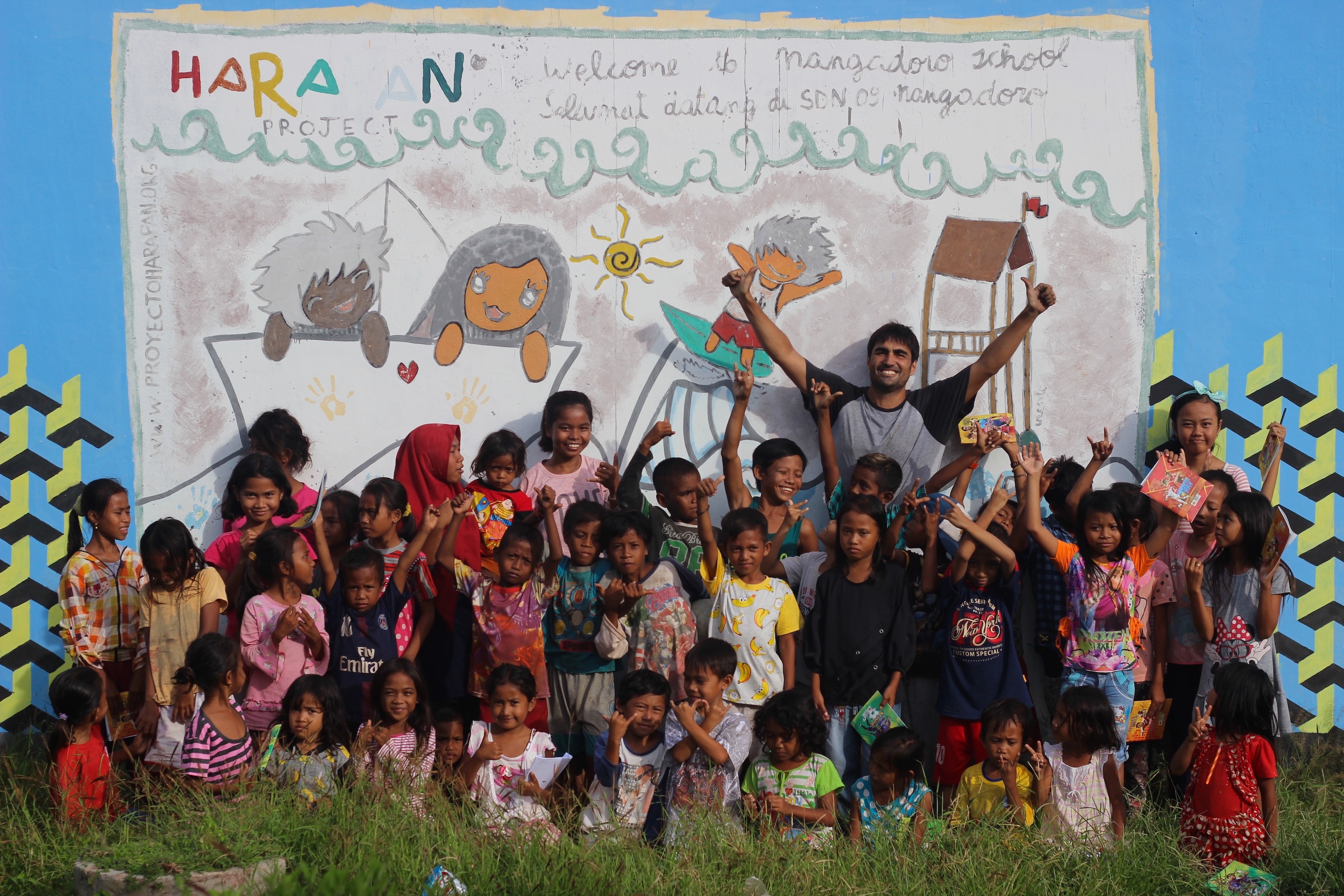
Since I was a child, my parents have instilled in me the importance of helping others, taking me since I was 6 years old to help with humanitarian work, particularly in soup kitchens and homes of the physically and mentally disabled. Therefore, I think that I owe this humanitarian mission in large part to my parents, Carlos and Maria Jose, and to my sister Laura, as they have taught me since I was a really small child to appreciate what really matters in life, health, love, friendship, happiness, and to always appreciate what you have, taking advantage of knowing the tough times and dealing with them through a huge smile.
On 2005 I made my first trip to Indonesia, including the island of Bali, attracted by its culture and the wonderful waves of this country. On this trip, a bit tired of the huge number of tourists present in Bali, I decided to do a trip for a few weeks on the island of Sumbawa, which is located three islands away from Bali. Sumbawa Island is strikingly different from Bali. Bali is an extraordinarily developed island, both economically and in tourism, where thousands of tourists from all over the world arrive at the airport every day. Yet Sumbawa, despite being much larger than Bali (Bali: 5,700 km2, Sumbawa: 15,448 km2), only receives a few tourists a week. Moreover, the people of Sumbawa hardly know how to exploit its tourism, which could help them leave the extreme poverty in which they are living. All together, the impact and the feelings I received during that first trip to Sumbawa were extraordinary.

In this trip I settled at Lakey Peak, a hotel complex designed especially for surfers with some of Sumbawa’s most famous waves (Lakey Peak, Lakey Pipe, Periscopes, Nangas…). Lakey Peak is located in the district of Hu’u, formed by a group of 19 villages, built over an area of 30 kilometres of roads, and inhabited by about 18,050 people, a 30% of which are school-aged. This population lives in extreme poverty and absolute deprivation caused by their obvious social exclusion and the strangeness of any infrastructure.

One day, I was approached by a child wanting to communicate with me, but speaking in Indonesian, a language I couldn’t speak at all. I asked him if he spoke English, and he answered “no, teacher no good”, he only spoke a few words. This surprised me greatly because it is the only language they could communicate with the little tourism that exists in the island, and therefore take advantage of the economic resource that tourism could be. So I told him the next day I was going to teach him English, and that he should tell his friends to also come to my classes. The next day I went to the meeting place I had agreed with that child, with a whiteboard I had borrowed from one of the few restaurants that exist in the area and my books to learn Indonesian from English (I was planning to use the books in the opposite direction). To my surprise I found the whole population of the closest village had turned up, about 150 people among whom were children, parents and even grandparents. Dazzled by these people’s desire to learn, I decided that my life should change to help these people. At that point Harapan Project was born.
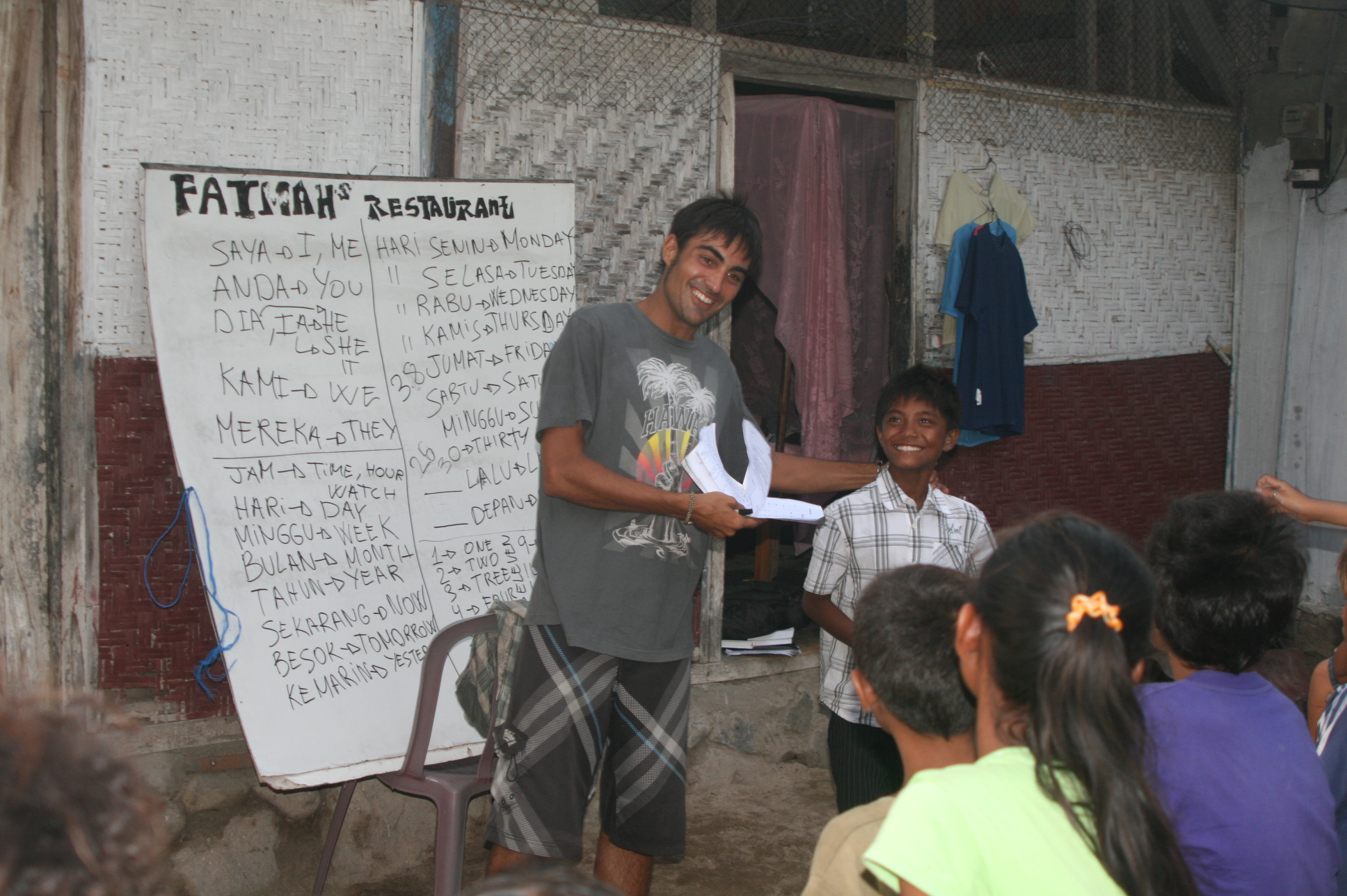
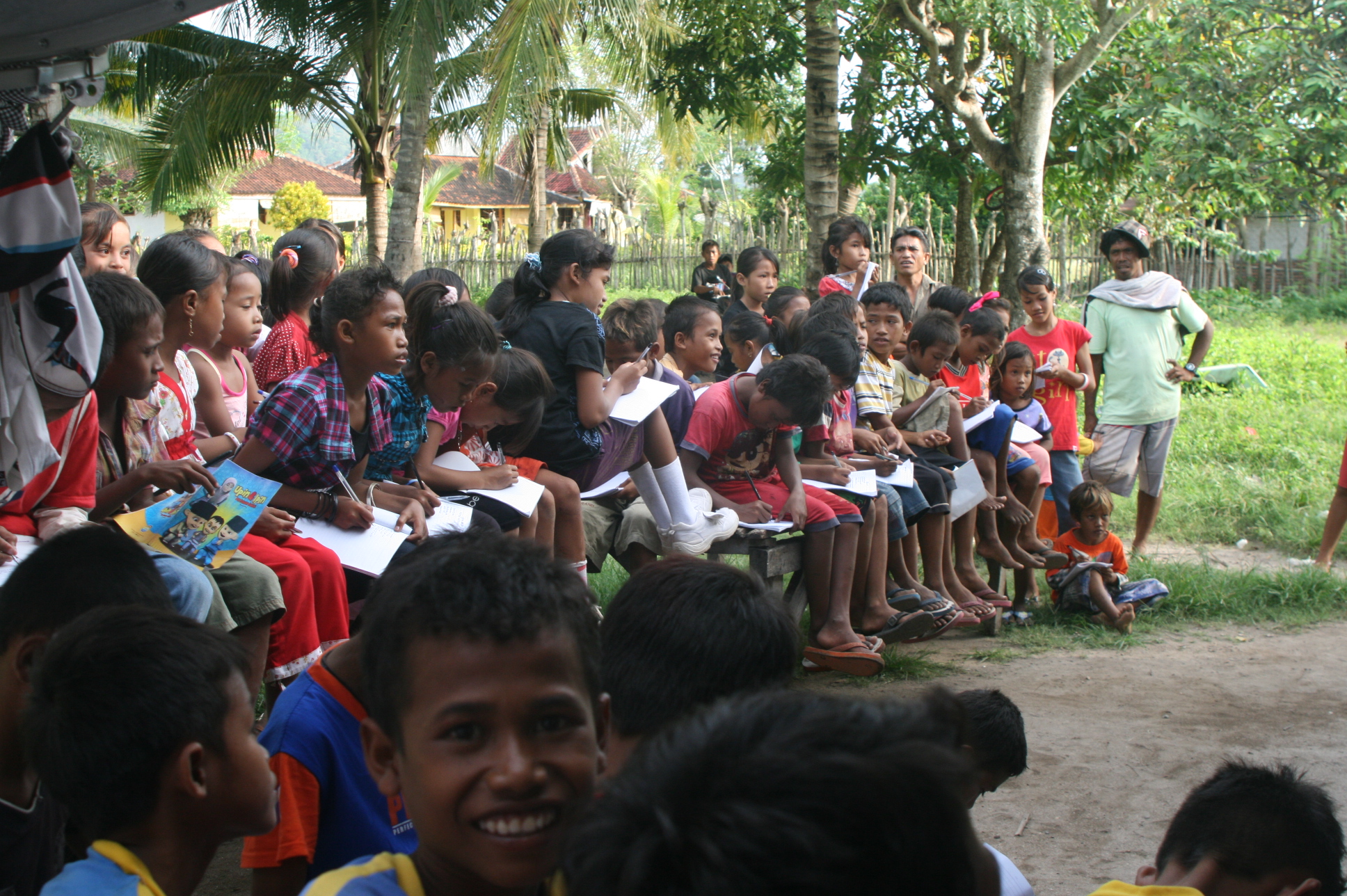
For the rest of my stay in Sumbawa, I continued my English classes every evening. It was amazing how each day more and more people were coming to them, excited that finally someone had decided to help them.
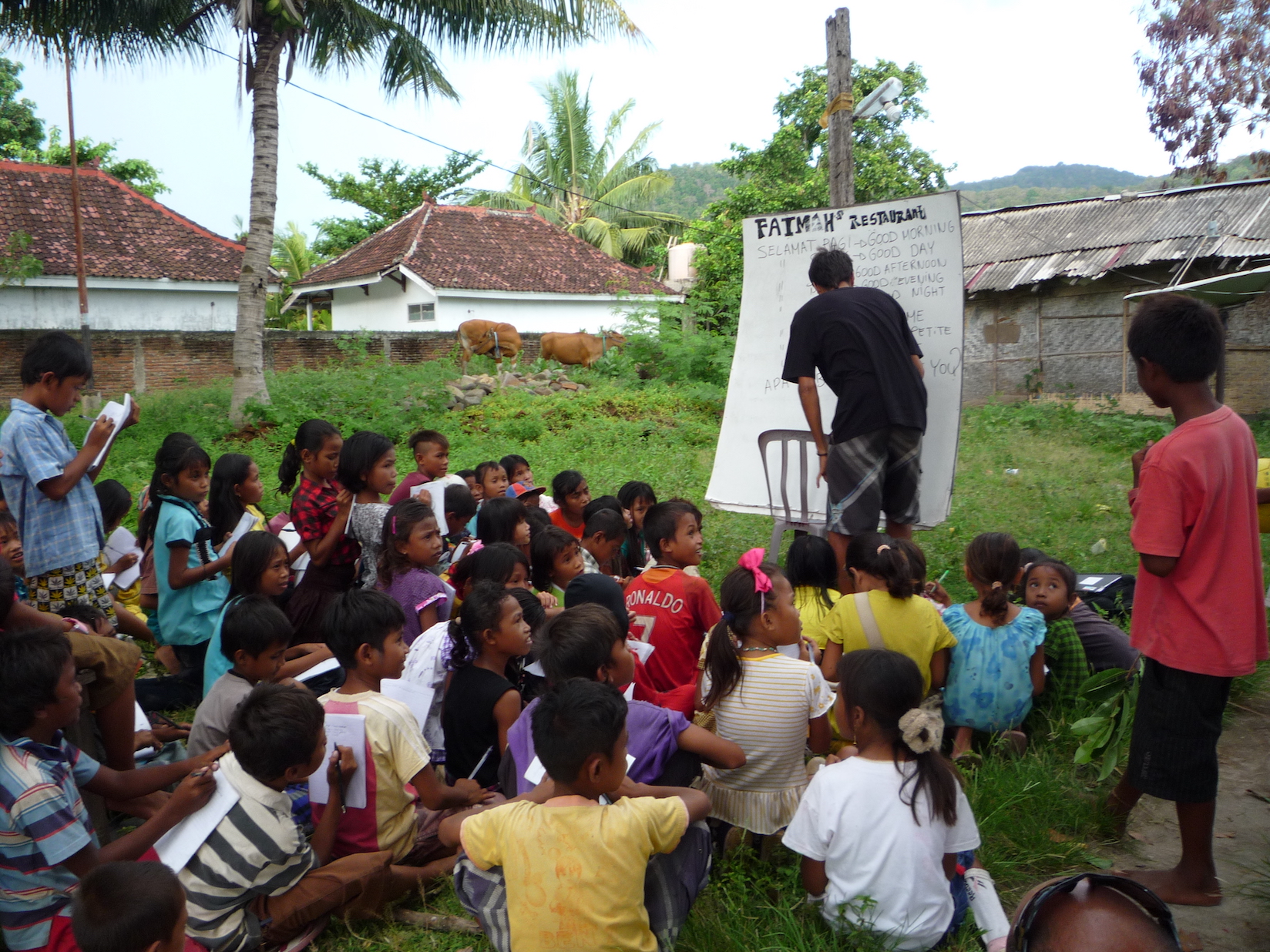
I have to say that school education in Indonesia is of very low quality, with teachers who mostly have no university degrees or any preparation for teaching. The Indonesian teaching system also has no technical or professional content, so the children’s success in professional opportunities is absolutely non-existent. All the above results in the local population’s total distrust towards the school, leading to the enormous schooling failure and dropouts, as well as significant gaps in education and training of the people of Hu ‘ u.
This mistrust towards education caused that many school-age children did not attend school regularly, especially those children living in the more remote, rural communities. In addition, many children couldn’t go to school because they were doing inappropriate productive tasks for their age: farming, agriculture, small traders assistants, shoe cleaning, etc. Access to schools wasn’t easy due to the lack of school transport and poor communications, which prevented children from distant villages to get to school every day. According to teachers, many parents showed little interest in their children attending school and, either by necessity or apathy, they preferred them to help with hold chores, in the case of girls, or cooperate in the tasks of the field in the case of boys. In addition, we identified quite a number of small businessmen using children for auxiliary tasks, taking advantage of the low cost of their work. Those children were in urgent need of a school to give them a good education to escape from the extreme poverty in which they lived, and that was certainly my role.

Once back in Barcelona, I continued my job as a lawyer but not for a second I did forget those wonderful people, that however hard their life was, they always wore a huge smile on their face. I started to work on Harapan Project, planning to create a humanitarian project and meeting specialists in the field of cooperation, who helped me find out which documentation I would need to prepare and what steps I should follow to make it happen. All this combined with my busy life as a lawyer, which only just allowed me to devote a few hours to the project.
During the following years, I did stays of 1 or 2 months every year on the island of Sumbawa and developed language courses and sports activities for the Hu’u children, besides annual donations of school, educational, sports material and medical health equipment. Also, I used my visits to the island for gathering all the documentation needed for the project (agreements with the Indonesian government, with the religious community, with local schools, with the local population, with the nearest hospital, building budget, search of the land on which to build the school…). If I wanted to carry out the Harapan Project, I needed to have everything closed and all institutions should be satisfied with it.
Finally in 2010, with the NGO Harapan Project already established, and all agreements and licenses formalized, I moved to live to the island of Sumbawa.
I have always believed that dreams are to make them come true and my dream is to give a better future to the local population of Hu’u, which undoubtedly deserves it.



